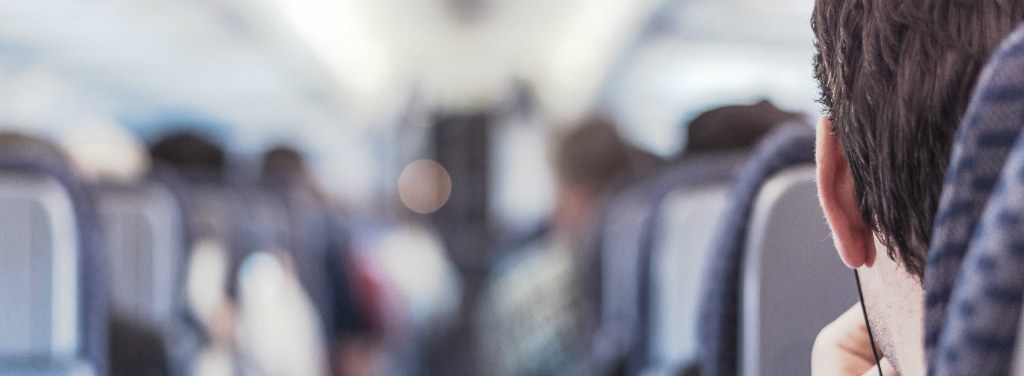
7 Air Travel Secrets Airlines Don't Tell Passengers
For so many of us, traveling by plane is becoming as routine as taking a train or bus. It feels like there are no air travel secrets left for us frequent fliers.
Indeed, so much of the flying experience is second nature to passengers.
Long security lines, duty free, cramped departure gates and of course delays and cancellations on flights. It’s all part of air travel.
But just when we thought we knew everything about flying, there’s plenty of things that never cross our minds as passengers. So, have you ever wondered if there are certain secrets airlines don’t tell you?
Even if you are the ultimate flying expert, commercial air travel has long been a breeding ground of secrets, myths and urban legends.
That’s why we teamed up with industry professionals to find out the seven biggest air travel secrets that airlines don’t tell passengers.
1. Mobile phones won’t put you in danger
It’s become commonplace to switch courteously to airplane mode as soon as we board a plane. But do portable electronic devices like mobile phones really interfere with the plane’s internal system?
“I probably shouldn’t say this,” says Virgin Atlantic pilot Chris Hall, “but no, as far as we know mobile phones don’t disrupt any of the communication or navigation systems on aircraft. I don’t condone the use of phones on planes though, as it’s totally up to the airline to choose whether they allow them or not. Not to mention, phones can be very irritating for crew and other passengers.”
2. Commercial planes don’t fly themselves
This one really gets on pilots’ nerves. They hear it often, and by all accounts it’s far from true.
Cockpit automation is NOT flying the plane. We pilots have to control ascent, descent and every change of direction. Plus, 99% of landings, and a full 100% of take-offs, are performed the old-fashioned way – by hand, with either the captain or first officer physically at the controls.
Patrick Smith, airline pilot and the host of askthepilot.com.
3. Turbulence never killed anyone
It’s natural to dig your nails into the armrest, or the person sitting next to you, when the cabin lurches from side to side in bad turbulence. But is it ever a risk to safety?
“Despite the instinct to be worried about jerky and uncomfortable movements” says Hall, “turbulence has never caused any aircraft to crash or break up. So don’t worry, you’ll be fine.”
A few times a year, passengers and crew are hurt by unforecasted clear air turbulence, which catches everyone by surprise. But stay seated with belts fastened and you will be totally fine.
4. Don’t drink the coffee
Don’t drink coffee on the plane. Seriously, just don’t.
I wouldn’t recommend drinking coffee or hot tea from the plane. It’s made with the potable water and those tanks are rarely cleaned out. None of the crew drink it.
Roni Faida Clarke, Ramp Agent and travel blogger at Ronithetravelguru.com
Now we’re on the topic, steer clear of tap water too. Airplane water tanks are notoriously hard to clean, so even when they are flushed with disinfectant, most bacteria stays in the tank. Do you really want to be sick on your 12-hour flight? I think not, ask for bottled water instead.
5. The toilets are never really locked
You can manually open the lavatory doors on planes from the outside without any external aid. Simply slip a fingernail underneath the edge of the lavatory sign and slide the knob to unlock the door.
Disclaimer: we aren’t responsible for any trouble you might get into with this knowledge.
6. Learn to love the overbook
Passengers being overbooked on flights is an increasing problem on major airlines, particularly in the US.
According to data from the US Department of Transportation, last year alone 40,000 people were involuntarily denied boarding on 12 major U.S. airlines.
Incidents such as Dr. Dao being violently dragged off a United Airlines overbooked flight on April 9th prompted United to change their customer service policy.
This is good news, because, in the wake of the incident, lots of airlines are revamping their compensation policies. If you can afford to wait around a few hours, you could be in for a big pay day.
if United bump you off an overbooked flight for example, then you are entitled to 400% of the one-way fare price — which could be up to $1,350 in total, according to the law. That’s quite a chunk of change for the inconvenience.
7. The best kept secret of all? Know your rights
Last but not least, here’s a secret we want you to shout from the rooftops.
Wherever you are in the world, did you know that you have special passenger rights for air travel? If your flight is delayed, canceled or overbooked you could be eligible for compensation to the tune of up to €600, depending on the length and severity of your disruption.
Any flight in the last three years where you encountered disruptions means you could be owed big cash. Head over to our Know Your Rights page to find out more.
So there you have it. Seven of the best kept secrets of air travel that passengers don’t know. Now you can stay smart about everything behind the scenes when it comes to traveling by plane.
Flight delays happen, but that doesn’t mean you have to accept them. You may be entitled to as much as $600 in compensation if your flight was delayed, canceled or overbooked within the last three years.
85% of passengers don't know their rights. Don't be one of them.
AirHelp has been featured in:



